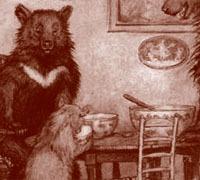An Introduction to the Committee on Degrees in Folklore & Mythology
The concentration in Folklore and Mythology is a liberal education in itself, and although most graduates of the program go on to successful careers in medicine, law, business, journalism, and other pursuits, an unusually large number of our alumni and alumnae teach and conduct research in a variety of academic departments. This concentration focuses on the study of society, past or present, through its cultural documents and artifacts, and uses a variety of methodologies drawn from the humanities and social sciences. To focus on the folklore and mythology of a society (at local, regional, national, or even trans-national levels) is to understand how that group or community defines itself through stories, music, food, folktales, legends, dramas, dance, rituals, beliefs, proverbs, epics, myths, customs, law codes, festival celebrations, “wisdom literature,” and many other forms of expressive culture and artistic communication. To study the folklore and mythology of any group is to discover how that group identifies itself in relation to others.
Founded in 1967 and the oldest undergraduate degree program in the field in this country, Folklore and Mythology at Harvard has produced many distinguished graduates. Students often form mutually supportive groups; student-faculty contact is by tradition — and structure — very close; and collegiality within the program is highly valued.
Concentrators conduct independent research on the material, oral, written, or performed forms of folklore and mythology in their areas of specialization, which range greatly across time and space. Our students develop and practice folkloristic methods -- deep listening, observant participation, cross-cultural comparison, historical contextualization, collaborative interpretation, cultural documentation, empathetic engagement, and good storytelling -- in relationship to whichever communities most interest and enthrall them.
Three central courses of the Concentration (General Education 1o97: Tradition, Performance, and Culture; FM 97: Fieldwork and Ethnography Folklore; and FM 98a: History and Theory of Folklore and Mythology) provide an introduction to the field of folkloristics, general knowledge of the theories and methods of the field, as well as a survey of ethnographic field methods and ethnological methodology.
In addition to this central core, each concentrator selects a Special Field. Roughly speaking, these fields fall into those that are grounded in a particular regional culture or language (such as Yoruba, Celtic, Greek, Scandinavian, English and American, German, Brazilian, Near Eastern, Chinese, Indian, Maori, etc.) and those that are not (such as Anthropology; Women and Gender Studies, Linguistics; Sociology; Ethnicity, Migration, and Rights; Ethnomusicology; Performance Studies; Folk Narrative; Internet Culture; International Law, etc.). Concentrators gain in-depth knowledge of the Special Field by taking at least five half-courses in it. The second half of the Junior tutorial (98b) investigates areas for research at the intersection of the Special Field and folklore proper. The senior tutorial is devoted to the honors thesis required of all concentrators. Current course offerings range from The History of Witchcraft and Charm Magic; to Internet Folklore and Online Communities; to Fairy Tale, Myth, and Fantasy Literature; to African Storytellers and Oral Traditions; to Tattoo: Histories and Practices; to Celtic Mythology; to Quilts and Quiltmaking; to the Folklore of Displacement and Migration; to Folk Medicine and Traditional Healing.
The dual structure of the Concentration, together with the unique position of folklore studies between the humanities and the social sciences, offers students an insurance policy against parochialism, while at the same time guaranteeing a deep and certain grasp of a traditional discipline. The original faculty legislation founding the program charged that candidates be prepared to do graduate work in the departments represented by their Special Field, as well as in Folklore and Mythology. In fact, our graduates have, over the years, exercised not only those alternatives, but have, like most graduates of the College, gone on to careers in law, business, medicine, and a variety of other professions, including journalism and film.
No special background is required for any Folklore and Mythology course, but good general preparation in languages, literature, history, and expository writing will be advantageous. Our Concentration strongly recommends proficiency in a language other than English, equivalent to that acquired by two years of college study. Generally, languages are very important to advanced work in folklore and in the Special Fields, and prospective concentrators are urged to look to language preparation in high school and from the beginning of their freshman year. In some of our Special Fields, language study may be counted toward concentration.
All potential concentrators should make an appointment with the Head Tutor to discuss Special Field options and suggested courses.

